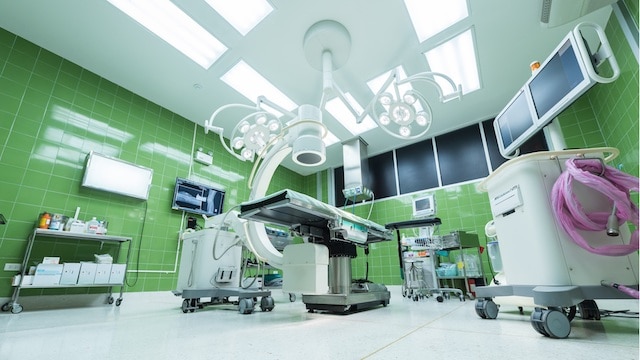Shares of private hospital operator Mediclinic (LSE: MDC) soared nearly 20% in early Thursday trading after news reports in the UAE showed Abu Dhabi authorities plan to do away with a 20% surcharge for insured citizens seeking treatment at private clinics. This would understandably be a boon for the likes of Mediclinic, but is it reason enough to buy its shares?
First off, the effects of this regulatory roll-back would be beneficial but not game changing. This is because its UAE hospitals accounted for just 15.6% of group revenue in the year to March, far below the 50% contributed by Switzerland or 30% by South Africa and Namibia.
But any positive news for UAE operations is welcome as they have struggled mightily in recent quarters following the merger with Al-Noor hospitals in 2015. This combination failed to pan out financially, leading to high levels of indebtedness and causing many doctors to leave, a situation that has yet to be fully corrected.
The biggest shame is that the company’s operations outside the UAE are performing very well. Its large Swiss operations enjoyed a 3.5% year-on-year rise in revenue and a respectable bump in EBITDA margins to 20%. The South African division also performed well with a 6.8% rise in annual revenue and EBITDA margins of 21%.
However, until the company can turn around its Emirates hospitals good results from other regions will remain obscured. While those regulatory changes may help, we’ve yet to see whether they alone will finally make the Al-Noor tie-up seem reasonable. With the company’s shares valued very highly at 21 times forward earnings and net debt a whopping 4.45 times 2016 EBITDA, I’ll be giving Mediclinic a pass.
Slow and steady wins the race?
The FTSE 100’s newest member, medical supplier Convatec (LSE: CTEC), will be hoping to convince investors it is a more reliable way than Mediclinic to cash in on ageing Western populations and increased rates of chronic conditions.
The company’s ostomy bags, wound dressings and infusion sets for insulin pumps are all items that will be in increasing demand in the coming years as patients live longer with conditions that would have led to significantly shortened lifespans even a few years ago.
But as an investment, Convatec doesn’t look like as much of a sure thing. The company was brought public by private equity owners who left the company saddled with debt, subdued profits and low growth. Thanks to IPO proceeds, net debt of $1.5bn is down to 3x EBITDA from its previous 6.9x EBITDA. But this level of indebtedness is still high considering net cash from operating activities was a meagre $75m in 2016.
Furthermore, year-on-year revenue growth of just 4% on a constant currency basis, and 2.3% on a reported basis, illustrates the problems management will have in growing what is already a massive business with $1.6bn in annual turnover. Designing and selling necessary but low margin medical supplies isn’t a bad business, but it’s certainly not a high growth one. With a mountain of debt, low growth and little cash flow, I’d steer clear of Convatec, especially with shares pricey at 20 times forward earnings.








